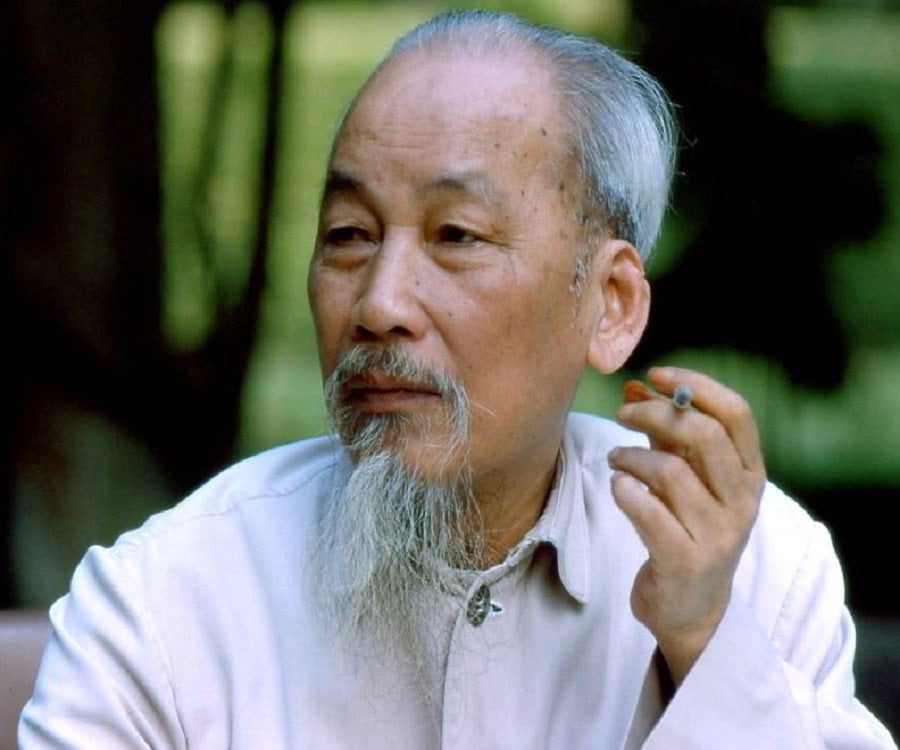
Ho Chi-Minh was the founder and first leader of Vietnam’s nationalist movement. Starting at an early age at the dawn of the 20th century, Ho became a strident voice for an independent Vietnam. He was inspired by the Bolshevik Revolution and joined the Communist Party traveling to the Soviet Union and China to spread the socialist doctrine into South East Asia. At the end of World War II, he appealed to the United States to assist him in liberating Vietnam from French control. But the post-war world order was not in his favor and he allied the hopes of his country with the Soviet Union and Communist China. Known as “Uncle Ho,” he became the symbol of Vietnamese liberation and the arch rival to the United States during the Vietnam War.
During World War II, Germany had taken over France and other European countries, leaving Indochina up for grabs. Japan moved in to fill the vacuum occupying much of Indochina. Ho Chi-Minh slipped across the border from China to rally his people toward independence.
By 1967 Ho Chi-Minh’s health was in decline. He made few public appearances but his legacy was kept alive in North Vietnamese for propaganda purposes. His political struggles with the West were nearly over. He was moving toward the image of national hero. In North Vietnam he was widely viewed as the father of the nation and often referred to as “Uncle Ho.” On September 2, 1969, Ho Chi-Minh died of heart failure at his home in Hanoi. He was 79. It would be almost six years before the South Vietnamese government would collapse and U.S. forces would withdraw ending the war in Vietnam.
“It was patriotism, not communism, that inspired me.”
― Ho Chi Minh

